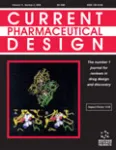| Titre : | Aripiprazole and ropinirole treatment for cocaine dependence: evidence from a pilot study (2011) |
| Auteurs : | M. MEINI ; M. MONCINI ; D. CECCONI ; V. CELLESI ; L. BIASCI ; G. SIMONI ; M. AMEGLIO ; M. PELLEGRINI ; R. N. FORGIONE ; P. RUCCI |
| Type de document : | Article : Périodique |
| Dans : | Current Pharmaceutical Design (Vol.17, n°14, May 2011) |
| Article en page(s) : | 1376-1383 |
| Langues: | Anglais |
| Discipline : | TRA (Traitement et prise en charge / Treatment and care) |
| Mots-clés : |
Thésaurus mots-clés ETUDE CLINIQUE ; ETUDE RANDOMISEE ; COCAINE ; PHARMACOTHERAPIE ; COMPULSION ; MEDICAMENTS ; COMPARAISONThésaurus géographique ITALIE |
| Résumé : |
BACKGROUND: Currently, there is no specific pharmacological therapy with established efficacy for the treatment of cocaine dependence. The aim of this study was to determine the safety, tolerability and the effects of aripiprazole and ropinirole in patients with cocaine dependence.
METHODS: This randomized clinical trial of 12-week duration was carried out on 28 consecutive patients with cocaine dependence presenting for treatment. The diagnostic assessment was performed using ICD-9-CM criteria and Mini International Neuropsychiatric Interview. The Clinical Global Impression Scale, a Visual Analogue Scale to assess craving and a self-report questionnaire on the use of cocaine were administered at baseline and then weekly throughout the study. Urinalyses were carried out three times per weeks to search for benzoylecgonine. RESULTS: Of the 28 study participants, 14 completed the protocol. Treatment discontinuation was unrelated with side effects. One patient required a dosage reduction of ropinirole because of sleepiness and one patient assigned to aripiprazole who reported moderate akathysia had the dosage reduced to 5 mg/day. Routine blood works did not show significant changes from baseline and the overall proportion of positive urinalyses for benzoylecgnonine did not differ significantly between treatments. Using linear mixed-effect models a significant decrease in craving was found in the overall sample (p CONCLUSIONS: Our pilot study indicates that cocaine craving decreases with both aripiprazole and ropinirole treatment but aripiprazole is more efficacious in reducing cocaine use. |
| Domaine : | Drogues illicites / Illicit drugs |
| Refs biblio. : | 49 |
| Affiliation : | Department of Medicine and Public Health, University of Bologna, Bologna, Italy |
 Accueil
Accueil



